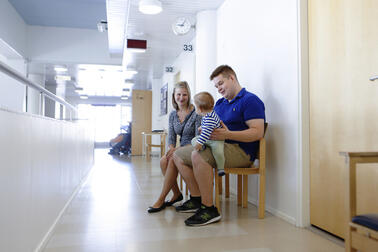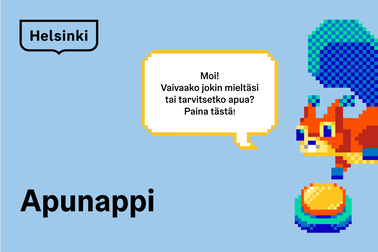
In Sonja and Sini’s work, cooperation between different professionals is important. Their main cooperation partners are Helsinki’s health and well-being centres and employment services as well as the TE Office and Kela. Sonja and Sini work in the work ability assessment unit of Western Adult Social Work.
We asked Sonja and Sini a few questions.
What does your work involve? What kind of cooperation do you have?
Work ability coordinators act as experts in supporting the ability to work. Our work focuses on clients’ existing ability to work and function and strengthening it instead of examining their inability to work.
Together with each client and the designated responsible worker, we plan timely work ability support services for the client. The service is intended for partially disabled people of working age and for long-term unemployed people whose goal is to find part-time or full-time employment.
The clients’ responsible workers consult us on matters such as the rehabilitation services of Kela or pension providers and on other means of supporting the ability to work. We often participate in joint meetings involving both the client and professionals. Our approach is consultative and solution-oriented.
We also support professionals in networks. We participate in weekly consultation meetings all around Helsinki.
In addition, we carry out extensive development work together with Helsinki’s health and well-being centres and external partners.
At Helsinki’s health and well-being centres, clients receive coordinated health and social services. What benefits do you see in this approach?
The services are close to each other and it is easier to work together. Thanks to cooperation between the services, clients receive effective services at the right time.
For their part, work ability coordinators act as bridge-builders between services for the working-age population, and the cross-boundary approach of the health and well-being centre services supports this work.
What about other partners?
Other partners are also an essential part of the coordination of services for the working-age population. In addition to the health and well-being centres, key partners include Helsinki’s employment services, the TE Office and Kela.
How do clients benefit from this cooperation?
Thanks to the cooperation, clients receive effective services at the right time. They also receive up-to-date information on the existing work ability support services. This allows the clients to influence their own services and plans concerning them.
How do professionals benefit from this cooperation?
From the point of view of professionals, overlapping work is reduced and the flow of information is improved. In addition, the professionals’ competence in work ability support services is strengthened and they are better able to identify the clients’ needs for support. Through the cooperation, the professionals learn more about each other’s work
What makes your work interesting?
Our work is very diverse. The most interesting thing about client work is being able to help people move forward in their lives. The most interesting part of development work is finding new ways to improve the services. We are also constantly learning new things in our work
Kuntatyö 2030 award for work ability coordinators – Congratulations!
In 2021 and 2022, Sonja Tykkä and Sini Riihimäki worked as work ability coordinators in Helsinki’s Työkykyisempi Stadi project, which was part of the national Work Ability Programme.
Last autumn, Sonja and Sini participated in the Kuntatyö 2030 competition, describing the multidisciplinary work ability support network created as a joint effort in the Työkykyisempi Stadi project, eventually earning the Kuntatyö 2030 award for an inspiring development effort. Congratulations!
Further information
- Multidisciplinary work ability support network (in Finnish)(Link leads to external service)
- Kuntatyö 2030 sectoral programme (in Finnish)(Link leads to external service)
- Ministry of Social Affairs and Health: Work ability programme(Link leads to external service)


